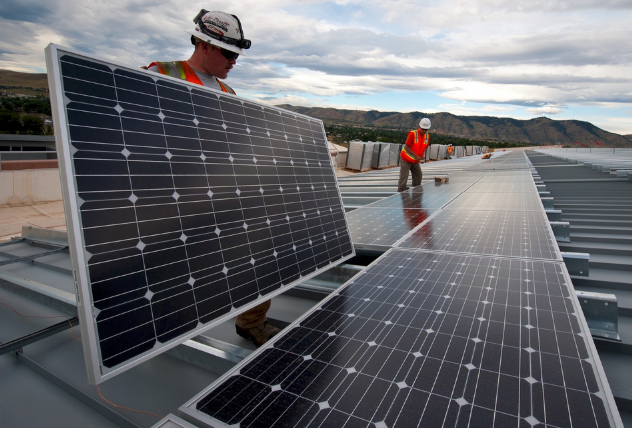
Which Boards are getting on board?
In the final weeks of 2020 and as Australia experienced horrific heat waves, floods and fires, at the Climate Ambition Summit the Chief of the United Nations, a tired and determined Antonio Guterres, rang the alarm bell:
“That is why today, I call on all leaders worldwide to declare a state of climate emergency in their countries until carbon neutrality is reached.”
Antonio Guterres, UN Secretary General
Even during this hectic year dominated by a global pandemic, governments and professional associations have been stepping further forward in making public declarations about our climate emergency.
Just like wedding vows, these Climate Emergency Declarations are statements of intent and commitment. Just like wedding vows, these Declarations require action and observance.
Some have decried these Declarations as hollow, some saying they inflame anxiety and that climate change is not so serious to warrant public commitments and targets.

This is clearly not the view of the growing number that have made these Declarations. Already over 30% of Australians live in local councils that have made public declarations, and nearly 80% of Britons are covered. And in late November, the national government of New Zealand stated its intention to Declare, joining major economies of Japan who declared in October, as well as Britain, France and Canada. Several have set net zero targets with ambitious dates: Finland by 2035 and Austria, 2040.
The Declarations are sobering and also inspiring. Each Declaration is unique and also similar. They clearly state the tragedy of inaction and urgency for action. They are also wedded to statements of intent to cut emissions to net zero emissions by 2050 if not earlier, in line with the Paris climate change targets.
Which Australian associations have already Declared?
Given the seriousness of the worsening weather and emissions and a desire to survive, a number of highly esteemed, pragmatic Australian associations have also publicly and formally Declared on behalf of their members. In doing so, members, management and boards have agreed on public statements expressing commitment and concern. To name a few:

- Australian Medical Association
- Australian Association of Social Workers
- Australian Society for Parasitology
- Planning Institute of Australia
- the Municipal Associations of Victoria and of Western Australia.
Their published statements are sobering. They cite the growing evidence of serious impacts in their relevant fields, be it trauma, stress, conflict, dislocation and suicide, loss of major infrastructure, high costs and disruption with this unfolding climate emergency.
The AMA statement is abundantly clear:
The AMA Federal Council recognises climate change as a health emergency, with clear scientific evidence indicating severe impacts for our patients and communities now and into the future.
Australian Medical Association, September 2019
They go on to call for specific actions, targets and plans from governments. Their concern for immediate response echo their position on the Covid-19 pandemic.
Sector alliances
As the concern and frustration grows at the lack of action to cut emissions, there’s also a growing number of alliances of concerned individuals outside of the auspices of associations. These professionals are banding together calling on their respective associations and on governments to formally Declare an emergency and do much more for systemic change to reach net zero emissions.
These champions for sustainability are energised, determined and working together to drive change and recognition of the urgency and scale and opportunities for change. In Australia alliances in professions calling for greater action includes:

For associations, the rise of separate groups of members raises important challenges and opportunities.
Implications for Directors of Associations?
Prudent associations with good leadership, within both management and boards, will keep abreast of burgeoning issues amongst their members and sectors. They will provide a legitimate platform for voices of concern and trends to consider and adapt as policy platforms.
Not all associations will make formal Climate Emergency Declarations. However, all must grapple with the impacts of climate change, have an aspirational target and be pursuing plans to cut emissions, in the same way they have programs on the other issues that affect their members and sector, such as Covid-19, OHS and regulations.
As the momentum and scrutiny grows for emission reduction and action on climate change, the question for all Australian associations is no longer WHAT should their position be but WHEN will they move forward?
They will be considering what are they prepared to win and lose in membership, reputation and influence in representation to an external group in their sector? How can they harness the momentum and lead the change in their sector on an unavoidable issue that will impact all their members? What ambition and action will they show in responding to the call of the United Nations and global leaders?
Read more:
Associations – Opportunities and Director Responsibilities with Climate Change
Professional Alliances vs Sector Associations. Splinters or Unity?







